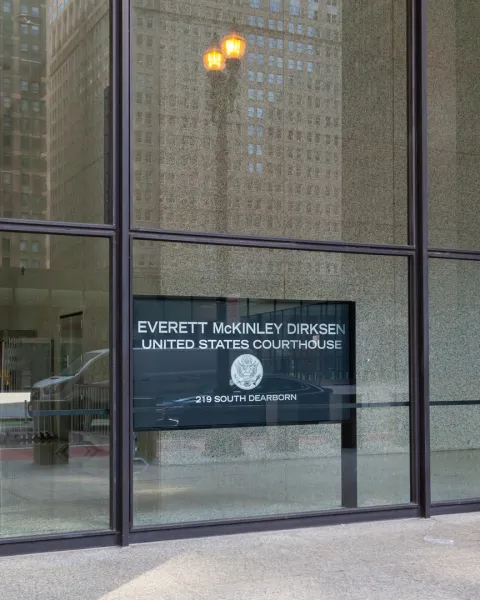The U.S. Court of Appeals for the Seventh Circuit joins a growing number of federal circuits to hold the U.S. Supreme Court’s 2017 decision in Bristol-Myers Squibb v. Superior Court, that sharply limited the use of nationwide multi-plaintiff suits, applies to putative Fair Labor Standards Act (FLSA) collective actions. Vanegas v. Signet Builders, No. 23-2964 (7th Cir. Aug. 16, 2024).
The Seventh Circuit covers Illinois, Indiana, and Wisconsin. The decision adds to the number of jurisdictions where employers may not be subjected to nationwide collective actions of federal wage and hour, equal pay, or age discrimination claims unless they are headquartered or incorporated in the state.
Bristol-Myers
In Bristol-Myers, a mass tort case, the Supreme Court held a California federal court did not have personal jurisdiction over claims against a non-resident company brought by out-of-state plaintiffs. Personal jurisdiction requires that the claims “arise out of or relate to” the defendant’s contacts with the forum state.
That jurisdictional requirement applies to each individual claim brought by each plaintiff, the Supreme Court explained. The out-of-state plaintiffs could not meet the requirement.
Vanegas: Bristol-Myers Applies
Vanegas is a putative wage-hour collective action against Signet Builders, a construction company incorporated and headquartered in Texas which operates nationwide. The suit was filed in Wisconsin, where the named plaintiff worked, so the federal court had jurisdiction over the named plaintiff’s claims. At issue was whether the court had jurisdiction over Signet employees outside Wisconsin who wanted to opt-in to the suit.
A divided panel of the Seventh Circuit held that Bristol-Myers jurisdictional requirements apply to FLSA collective actions. Therefore, the employees would have to show the court had jurisdiction over their individual wage and hour claims. Because the out-of-state employees’ claims did not arise from contacts with Signet in Wisconsin, the court lacked jurisdiction, the appeals court found, and the out-of-state employees could not opt-in to the suit.
The plaintiffs have indicated they will seek panel rehearing, or rehearing by the full en banc Seventh Circuit. The appeals court has given the plaintiffs a September 27 deadline to file their petition.
Clear Majority
The Seventh Circuit joins three other circuits on this issue. There is now a 4-1 circuit split that solidly favors employers.
Prior to Bristol-Myers, courts did not require opt-in plaintiffs in FLSA cases to individually establish that the court has jurisdiction over their claims against the defendant. However, several circuit courts since have found that opt-in plaintiffs must demonstrate the court has personal jurisdiction over each of their claims. These include:
- Third Circuit in Fischer v. Federal Express Corp., 42 F.4th 366 (2022)
- Sixth Circuit in Canaday v. Anthem Cos., Inc., 9 F.4th 392 (2021)
- Eighth Circuit in Vallone v. CJS Solutions Group, LLC, 9 F.4th 861 (2021)
The Third Circuit has jurisdiction over Delaware, New Jersey, and Pennsylvania. The Sixth Circuit covers federal courts in Kentucky, Michigan, Ohio, and Tennessee. The Eighth Circuit includes Arkansas, Iowa, Minnesota, Missouri, Nebraska, North Dakota, and South Dakota.
The First Circuit, however, has held that Bristol-Myers does not apply to collective actions and allowed FLSA collectives against nonresident employers to include members from outside the forum state in Waters v. Day & Zimmermann NPS, Inc., 23 F.4th 84 (2022). The First Circuit includes Maine, Massachusetts, New Hampshire, Puerto Rico, and Rhode Island.
The Supreme Court rejected the defendant’s petition for review the divided First Circuit panel’s outlier decision. This was one of several opportunities the Supreme Court has declined to resolve the question whether Bristol-Myers applies to FLSA collective actions.
Takeaways
With the growing number of circuits applying Bristol-Myers in the FLSA context, it is much harder for employees to pursue massive nationwide collective actions and to engage in forum shopping to bring those actions in a favorable jurisdiction.
In circuits that have adopted Bristol-Myers, collectives will be limited to those employees in the state where the suit is filed. An employer still faces the prospect of a nationwide FLSA collective action brought against them in the state in which the employer has its principal place of business, is incorporated, or is subject to general jurisdiction. The application of Bristol-Myers to FLSA collective actions has caused an uptick in plaintiffs filing these suits in the state where a company is headquartered. This trend is likely to continue. Bristol-Myers also means that, although employers may be able to avoid a nationwide litigation, they may be subjected to duplicative multistate collective actions in different jurisdictions.
Finally, the Bristol-Myers analysis differs with respect to class actions. Several federal appeals courts (including the Sixth and Seventh Circuits) have ruled that Bristol-Myers does not apply to Rule 23 class action suits. If a consensus emerges that Bristol-Myers applies to collective but not class actions, it may alter plaintiffs’ calculation of where, and under what statute, to sue. It is a murky landscape.
Please contact a Jackson Lewis attorney if you have questions about the Vanegas decision or the application of Bristol-Myers to class and collective actions.
© Jackson Lewis P.C. This material is provided for informational purposes only. It is not intended to constitute legal advice nor does it create a client-lawyer relationship between Jackson Lewis and any recipient. Recipients should consult with counsel before taking any actions based on the information contained within this material. This material may be considered attorney advertising in some jurisdictions. Prior results do not guarantee a similar outcome.
Focused on employment and labor law since 1958, Jackson Lewis P.C.’s 1,000+ attorneys located in major cities nationwide consistently identify and respond to new ways workplace law intersects business. We help employers develop proactive strategies, strong policies and business-oriented solutions to cultivate high-functioning workforces that are engaged and stable, and share our clients’ goals to emphasize belonging and respect for the contributions of every employee. For more information, visit https://www.jacksonlewis.com.



